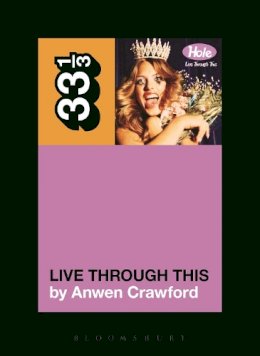
Hole´s Live Through This
Anwen Crawford
Courtney Love has never been less than notorious. Her intelligence, ambition and appetite for confrontation have made her a target in a music industry still dominated by men. As Kurt Cobain's wife she was derided as an opportunistic groupie; as his widow she is pitied, and scorned, as the madwoman in rock's attic. Yet Hole's second album, Live Through This, awoke a feminist consciousness in a generation of young listeners.
Live Through This arrived in 1994, at a tumultuous point in the history of American music. Three years earlier Nirvana's Nevermind had broken open the punk underground, and the first issue of a zine called Riot Grrrl had been published. Hole were of this context and yet outside of it: too famous for the strict punk ethics of riotgrrrl, too explicitly feminist to be the world's biggest rock band.
Live Through This is an album about girlhood and motherhood; desire and disgust; self-destruction and survival. There have been few rock albums before or since so intimately concerned with female experience. It is an album that changed lives – so why is Courtney Love’s achievement as a songwriter and musician still not taken seriously, two decades on?
Product Details
About Anwen Crawford
Reviews for Hole´s Live Through This
Gavin Sheehan
SLUG Magazine
Crawford's book in the 33 1/3 series about Hole's Live Through This is passionate, thoughtful, empathetic and well-argued, an explanation of what the album meant to smart suburban teenagers trying to figure out where they fit into the world.
Tim Byron
The Vine
This book made me care about an artist I had long ago written off. Yes, Courtney Love has pretty much retired from making meaningful music, but for Anwen Crawford, an Australian journalist and critic, that only makes Hole’s 1994 album Live Through This all the more compelling. As she chronicles the decisions that produced the band’s grunge-era breakthrough—which was released just days after Kurt Cobain’s suicide—Crawford writes movingly about the effect these songs had on herself and on other women around the world … In that regard, the album’s anger and ferocious self-determination haven’t diminished in two decades.
Stephen M. Deusner
Pitchfork
